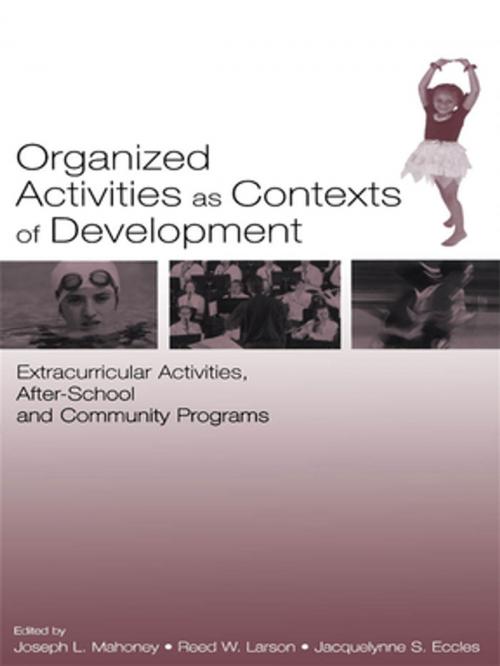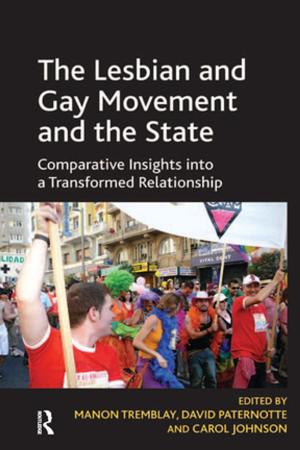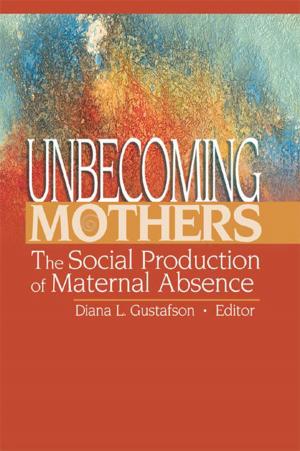Organized Activities As Contexts of Development
Extracurricular Activities, After School and Community Programs
Nonfiction, Health & Well Being, Psychology, Applied Psychology, Child & Adolescent, Child Development| Author: | ISBN: | 9781135628123 | |
| Publisher: | Taylor and Francis | Publication: | March 23, 2005 |
| Imprint: | Psychology Press | Language: | English |
| Author: | |
| ISBN: | 9781135628123 |
| Publisher: | Taylor and Francis |
| Publication: | March 23, 2005 |
| Imprint: | Psychology Press |
| Language: | English |
School-aged children in the U.S. and other Western nations spend almost half of their waking hours in leisure activities. For some, out-of-school time is perceived as inconsequential or even counterproductive to the health and well-being of young persons. Recently, however, there has been a growing recognition that--along with family, peers, and school--the organized activities in which some youth participate during these hours are important contexts of emotional, social, and civic development. They provide opportunities for young persons to learn and develop competencies that are largely neglected by schools. At the same time, communities and national governments are now channeling considerable resources into creating organized activities for young people's out-of-school time. This volume brings together a multidisciplinary, international group of experts to provide conceptual, empirical, and policy-relevant advances in research on children's and adolescents' participation in the developmental contexts represented by extracurricular activities, and after-school and community programs.
Organized Activities as Contexts of Development provides a handbook-like coverage of research in this new emerging field. It considers a broad developmental time-span from middle childhood through early adulthood, providing information on how motivation, participation, and developmental experiences change as youth get older. The contents cover one of the most salient topics in child and adolescent research, education, and social policy, placing consistent emphasis on developmental aspects and implications of organized activity participation for young persons. Representing contributors from several fields of study--psychology, criminal justice, leisure science, sociology, human development, education, prevention, and public policy--the book is designed to appeal to students and scholars in all these areas. Additionally, the volume is written to be of interest to professionals who administer programs and develop policy on youth.
School-aged children in the U.S. and other Western nations spend almost half of their waking hours in leisure activities. For some, out-of-school time is perceived as inconsequential or even counterproductive to the health and well-being of young persons. Recently, however, there has been a growing recognition that--along with family, peers, and school--the organized activities in which some youth participate during these hours are important contexts of emotional, social, and civic development. They provide opportunities for young persons to learn and develop competencies that are largely neglected by schools. At the same time, communities and national governments are now channeling considerable resources into creating organized activities for young people's out-of-school time. This volume brings together a multidisciplinary, international group of experts to provide conceptual, empirical, and policy-relevant advances in research on children's and adolescents' participation in the developmental contexts represented by extracurricular activities, and after-school and community programs.
Organized Activities as Contexts of Development provides a handbook-like coverage of research in this new emerging field. It considers a broad developmental time-span from middle childhood through early adulthood, providing information on how motivation, participation, and developmental experiences change as youth get older. The contents cover one of the most salient topics in child and adolescent research, education, and social policy, placing consistent emphasis on developmental aspects and implications of organized activity participation for young persons. Representing contributors from several fields of study--psychology, criminal justice, leisure science, sociology, human development, education, prevention, and public policy--the book is designed to appeal to students and scholars in all these areas. Additionally, the volume is written to be of interest to professionals who administer programs and develop policy on youth.















